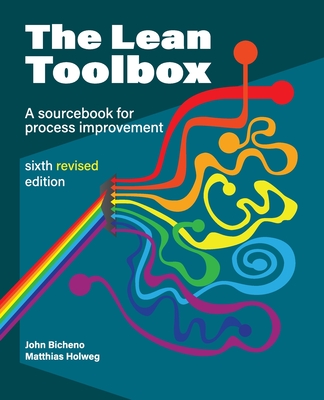
Revisions and updating occur throughout the book but in particular substantial revisions are in Chapters dealing with Digital, in Scheduling, in Quality management, in Psychological Safety, and in Agile and Scrum. Scheduling draws on the best from Lean, TOC, Factory Physics, DDMRP, and Demand management.
Previous editions have sold over 130,000 copies, and adapted versions have been translated into Danish, Chinese and German. Across its editions, the Lean Toolbox has been prescribed reading at several UK, US, Irish and South African universities, and has featured as a standard reference for the APICS / ASCM professional CPIM examination.
This edition marks once again a significant update. New sections now cover digital tools and how these can support lean transformations, how to respond to complexity and uncertainty in the world firms operate in, and the importance of psychological safety in making sustainable improvements. Significant further revisions reflect advances in scheduling, demand management, problem solving, layout, and in many fundamental topics.
Apart from updates in many sections, this new (Sixth) edition has new (or substantially revised) sections on Digital Lean, Process mining, Bottlenecks and floating bottlenecks, Demand management and demand categories, A Scheduling framework, Psychological safety, Environmental sustainability, The Job Characteristics Model, A TPM Maintenance framework, Scrum and Agile, Seru Cells, OODA vs PDSA, and Engagement







